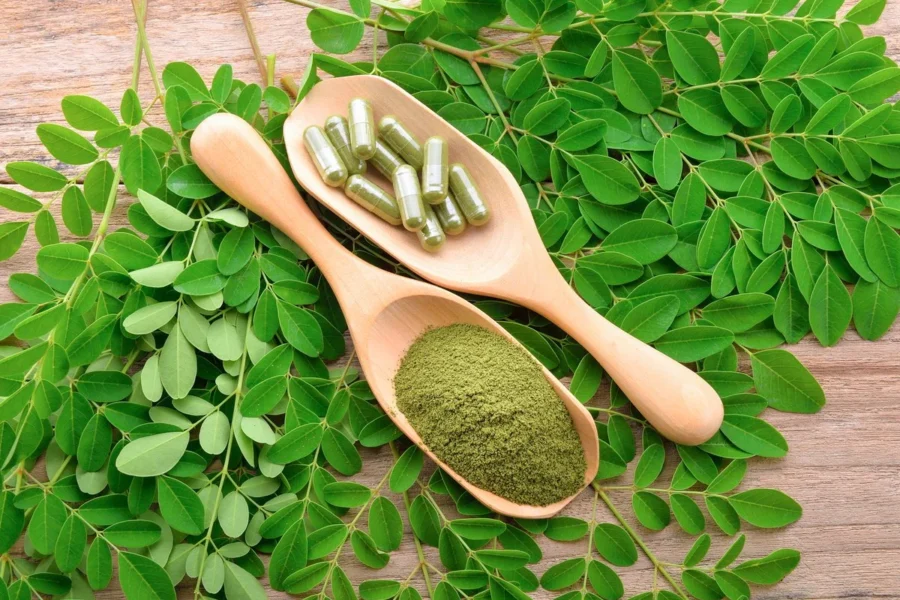What you need to know about L-theanine.
Blog
What is L-theanine?
L-theanine is a naturally occurring amino acid, although it isn’t used as a building block for protein synthesis, unlike the 20 standard protein-forming amino acids that are synthesized by the genetic code. Several types of tea, including black, oolong, and green tea,contain theanine (generally <50 mg per serving). When higher doses are desired, theanine can also be taken as a dietary supplement; the theanine in supplements may be extracted from tea or chemically synthesized using bacterial enzymes.
“Amino acids are proteins and they’re really the building blocks of our life,” explains Zumpano. “Amino acids are molecules used by all living things to make proteins. In total, we as humans need 20 different amino acids to function properly. But there are those 11 essential amino acids that our body really needs to get through food.”
While L-theanine isn’t essential for our survival, its presence in plants and fungi has been studied for its possible impact on our brain function.
What are other names for Theanine?
Note that Theanine is also known as:
- L-Theanine
- 5-N-Ethyl-Glutamine
- γ-glutamylethylamide
What are L-theanine’s main benefits?
Here are some of the explored benefits of L-theanine:
Improving sleep quality
You may have heard that taking L-theanine before bed can help if you experience disruptive sleep or have trouble falling asleep. A 2019 study explored the benefits of an L-theanine and GABA supplement combination on sleep quality and length. GABA, short for gamma-aminobutyricacid, is a naturally occurring chemical messenger in your brain that’s been linked to creating a calming effect. It’s also available as a dietary supplement.The study showed that this combination could potentially increase sleep duration and REM sleep.

Reducing stress and anxiety
Remember how a cup of tea can calm you down after a hectic day? Research shows that L-theanine supplements can elevate your levels of GABA, dopamine and serotonin, which promotes relaxation and reduces anxiety levels.
Boosting mental clarity
If you’re feeling brain fog or a general blah feeling, L-theanine may be able to help give you a boost of mental clarity and enhance your ability to focus. L-theanine helped healthy adults with verbal fluency and the ability to stay focused. The benefits are heightened when taken with caffeine.
Weight loss
As part of a calorie-controlled diet, replacing a snack with green tea or another low-calorie hot beverage could aid weight loss.The L-theanine in green tea can create a savory taste, also known as umami flavor. ResearchTrusted Source suggests that umami flavors may reduce appetite, which often helps with weight loss.

Is it safe?
It’s important to add that these L-theanine side effects are relatively uncommon and tend to be mild. L-theanine is generally considered safe for most people, but it’s always a good idea to talk to your healthcare provider before taking any new supplement, especially if you have any underlying health conditions or are taking medications. In addition, pregnant or breastfeeding (chestfeeding) people should also exercise caution when taking L-theanine, as there’s limited research on its safety in these populations.
“As of right now, the FDA has classified L-theanine as generally safe, but we don’t have specific guidelines on how to take it, just what the studies have shown,” adds Zumpano.
It’s also important to know that, like all supplements, the U.S. Food and Drug Administration (FDA) doesn’t review or regulate L-theanine products. This means no one checks what’s sold to ensure it’s safe and effective. If you’re planning to try L-theanine in supplement form, you should look for a high-quality version with no added fillers.
Can You Take Too Much L-Theanine?
L-theanine isn’t known to be toxic and hasn’t been shown to have any adverse effects on health, even when taken in high doses.
However, it’s best to follow the dosing instructions listed on the supplement product.
If you are drinking teas for L-theanine, drinking more than 400 mg of caffeine per day may cause side effects. One eight-ounce cup of tea may contain 14-60 mg of caffeine.
Are there side effects or risks to taking L-theanine?
Again, supplements affect everyone differently, but, “common side effects may include headache, nausea and drowsiness” for some people, says Tewksbury.
You shouldn’t take L-theanine supplements if:
- You are pregnant or breastfeeding
- You’re allergic to green tea
- You take sedatives, antidepressants, blood pressure medication, anti-seizure drugs, or asthma medication
L-Theanine Dosing
Based on amounts that have been investigated in scientific studies, 100 mg to 400 mg doses can be beneficial for sleep. In general, it is recommended that users begin with the smallest suggested dose, and gradually increase until it has an effect.
